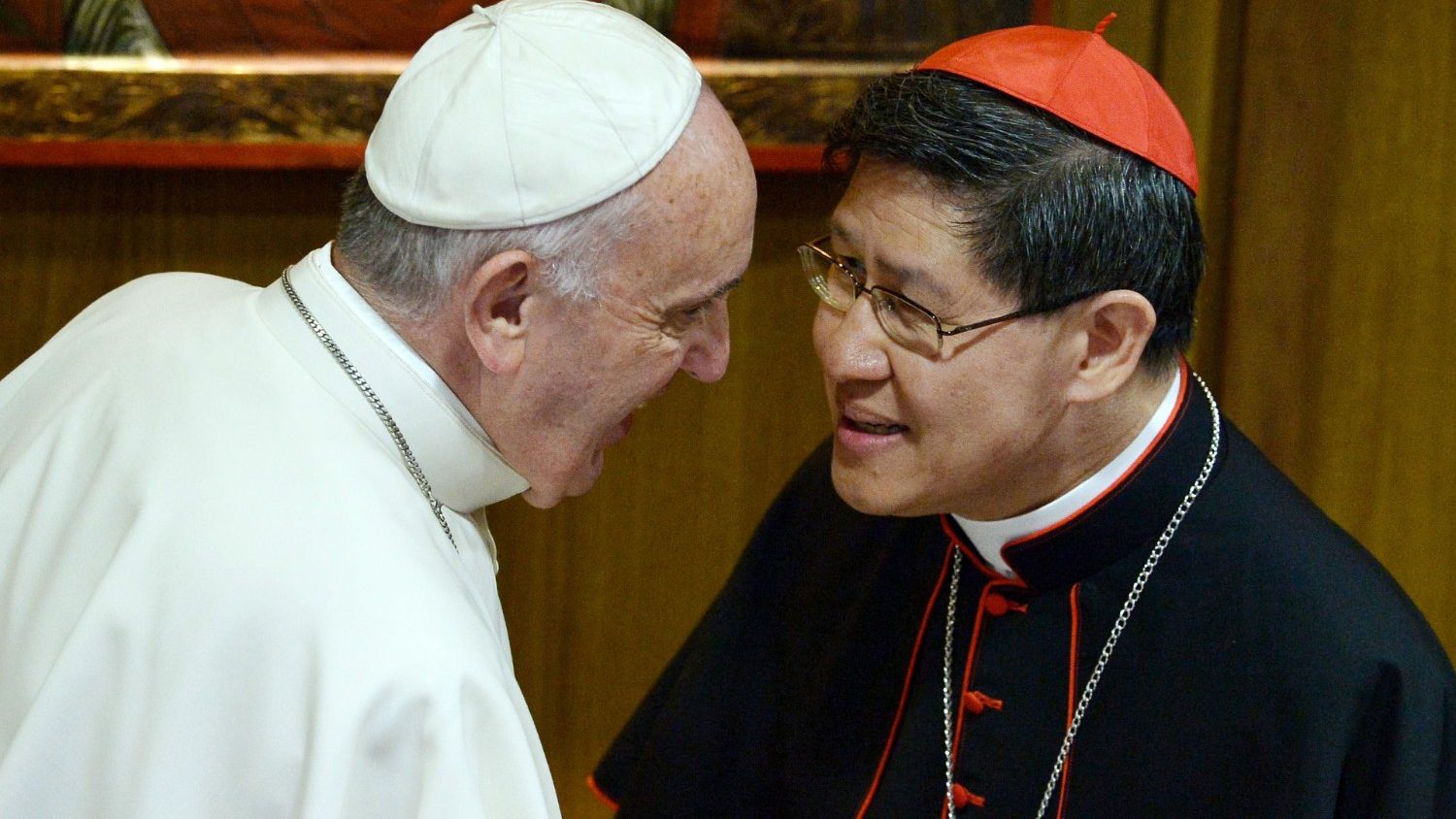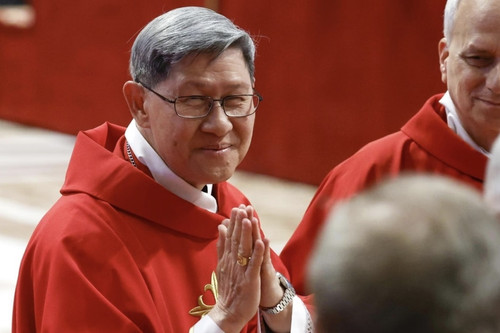As the Catholic world turns its eyes to the Vatican for next week’s conclave to select the successor to Pope Francis, a wave of cautious optimism is sweeping through the Philippines. In cathedrals, homes, and online forums across this devoutly Catholic nation, whispers of hope are growing louder: could Cardinal Luis Antonio Tagle, a 67-year-old prelate from Imus, just south of Manila, become the first Asian pope in the Church’s 2,000-year history? For a country that often sees itself as an underdog on the global stage, the prospect of a Filipino leading 1.4 billion Catholics is nothing short of electrifying. Yet, Tagle’s candidacy is not without controversy, with debates raging over whether he is a bold progressive capable of reshaping the Church or a cautious academic who treads too carefully to effect real change.
A Nation’s Hope for History
The Philippines, where over 80% of the population is Catholic, has long been a stronghold of the faith in Asia. From the bustling cathedrals of Manila to the quiet parishes of rural provinces, the faithful are uniting in prayer as the conclave approaches. Cardinal Tagle, one of 135 cardinals who will gather in the Sistine Chapel to choose the next pope, is a source of immense national pride. Ordained as a priest in 1982 and elevated to cardinal in 2012 by Pope Benedict XVI, Tagle has risen steadily through the Church’s ranks. His global profile, pastoral charisma, and reputation for compassion have made him a perennial favorite in discussions about the papacy.
“We Filipinos always think we are underdogs in world affairs, so a Filipino pope, a major world leader, would definitely give us pride,” said Michael Xiao Chua, a historian at De La Salle University in Manila. This sentiment echoes across the country, where Tagle is seen not only as a religious figure but as a potential symbol of Filipino excellence on the world stage. In the days following Pope Francis’s death, worshippers at Manila’s cathedrals expressed their hopes with a mix of excitement and restraint. “I’m rooting for him; he’s one of the most cheerful people I’ve ever encountered,” said Danna Armela Abel Nidea, a member of a parish choir in the capital. “He stands for what is right, regardless of your gender,” she added, a nod to Tagle’s reputation as a relatively progressive voice within the Church.

Tagle’s appeal stems partly from his approachable demeanor and his ability to connect with ordinary Catholics. Known for his warm smile and down-to-earth style, he has earned the affectionate nickname “Chito” in the Philippines. His tenure as Archbishop of Manila from 2011 to 2019 showcased his pastoral focus, with initiatives aimed at engaging youth and addressing poverty in one of Asia’s most unequal societies. Internationally, Tagle has been a prominent figure, serving as the Prefect of the Dicastery for Evangelization in Rome since 2019, a role that has kept him in the Vatican’s inner circle.
The Progressive Promise
Much of Tagle’s progressive reputation was cemented by a 2015 speech at Wembley Arena in London, where he addressed thousands of young Catholics. He spoke candidly about the harm caused by the Church’s “severe” and “harsh” stances toward marginalized groups, including LGBT individuals, divorcees, and single mothers. Emphasizing mercy as a cornerstone of the faith, he later told the UK’s Telegraph that such groups had been “branded” and isolated from society due to rigid Church policies. These remarks resonated deeply, particularly in progressive Catholic circles, and fueled speculation that Tagle could be a transformative figure in the mold of Pope Francis.
In the Philippines, where divorce remains illegal—a rarity in the modern world—Tagle’s pastoral approach to contentious issues has won him admirers. Unlike some of his more conservative peers, he has advocated for dialogue and compassion in addressing the needs of those who feel alienated by traditional Church teachings. Early in Pope Francis’s papacy, international Catholic media began touting Tagle as a potential future pope, citing his ability to navigate complex social issues with empathy. His focus on “pastoral solutions” to topics like divorce and family life has positioned him as a bridge between the Church’s doctrinal rigidity and the realities of modern life.
Yet, Tagle’s progressive credentials are not without asterisks. While he has signaled openness to dialogue, he has consistently upheld Church doctrine on key issues. For instance, he has publicly opposed government efforts to expand access to contraceptives, aligning with the Philippine Church’s longstanding resistance to reproductive health reforms. This duality—compassionate rhetoric paired with doctrinal fidelity—has sparked debate about the depth of his progressive convictions.
A Cautious Climb?
Not everyone is convinced that Tagle is the bold leader the Church needs. Prominent Catholic commentator Paul Collins, in his guide to likely papal contenders, cautions that media speculation about Tagle’s chances may not translate to support among his fellow cardinals. “Hype is not always a recommendation to his cardinal colleagues,” Collins wrote, suggesting that Tagle’s high profile could work against him in the secretive world of the conclave.
In the Philippines, the days following Pope Francis’s death have seen heated online debates about Tagle’s leadership style. Some critics argue that he lacks the forcefulness required to tackle contentious issues head-on. Father Robert Reyes, a Manila-based priest who studied with Tagle, describes him as “brilliant” but “moderate” in his approach to justice, sexual ethics, and emerging challenges like artificial intelligence. “He would not take a very radical or progressive point of view,” Reyes told the ABC. Instead, Tag vóe synthesizes existing Church positions, crafting balanced, middle-of-the-road stances that avoid rocking the boat.
Reyes points to Tagle’s tenure as Archbishop of Manila as evidence of his caution. During this period, which coincided with former President Rodrigo Duterte’s brutal drug war, Tagle was notably restrained in his public criticism of the government. Duterte’s campaign, which led to thousands of extrajudicial killings and is now under investigation by the International Criminal Court, was a deeply divisive issue in the Philippines. While some priests and Catholic activists openly condemned the violence, Tagle’s response was measured, focusing on pastoral care for victims rather than direct confrontation with the state. “He does not make trouble, whoever is the Church leader, he supports the leader very well,” Reyes said, using Tagle’s nickname, Chito. “In terms of addressing controversy, Cardinal Chito would not venture into dangerous waters.”

This reluctance to wade into political or social controversies has led some to question whether Tagle has the stomach for the papacy’s global stage. “He’s viewed as an open-minded ally for progressive issues, but not a leader who has substantially changed attitudes in the Philippines,” said Redd de Guzman, an advocate for legalizing divorce. De Guzman argues that while Tagle’s rhetoric is refreshing, the broader Philippine Church remains conservative, with many priests on the ground resisting his more inclusive views. “You have priests every day talking to their communities who aren’t fully in agreement with what he’s saying,” he added.
The Weight of Tradition
The Philippine Catholic Church’s conservative bent is a significant factor in the debate over Tagle’s candidacy. Despite his reputation for openness, Tagle operates within a Church that has historically resisted progressive reforms. The Church’s opposition to divorce, for example, has long influenced Philippine politics, dissuading lawmakers from supporting legalization. “The Catholic Church in the Philippines remains less liberal and less progressive,” de Guzman said, noting that Tagle’s influence has not shifted this dynamic significantly.
Tagle’s critics also point to his academic disposition as a potential weakness. “Some of the criticism here is about his approach, that he’s more of an academic, that he’s more suited to an administrative role,” said Professor Xiao Chua. Tagle’s scholarly background—he holds a doctorate in theology from the Catholic University of America—has shaped his methodical approach to leadership. While this has earned him respect in Vatican circles, it has also fueled perceptions that he lacks the bold vision needed to lead the Church through turbulent times.

At the cathedral in Imus, where Tagle was ordained in 1982, staff declined to make a priest available to discuss his early years, reflecting the sensitivity surrounding his candidacy. This reticence underscores the high stakes of the moment, as Filipinos grapple with the possibility of a pope from their ranks.
A Divided Legacy
As the conclave looms, Cardinal Tagle remains a polarizing figure. To his supporters, he is a compassionate pastor whose emphasis on mercy could guide the Church toward greater inclusivity. To his critics, he is a cautious figure whose reluctance to challenge the status quo limits his transformative potential. In a country where faith and identity are deeply intertwined, the debate over Tagle’s legacy is as much about the Philippines’ place in the world as it is about the future of the Catholic Church.
For now, Filipinos wait with bated breath, their hopes tempered by the uncertainties of the conclave. Whether Tagle emerges as the first Asian pope or remains a beloved but divisive cardinal, his candidacy has already sparked a reckoning about what it means to lead in an era of change. Will he be the progressive trailblazer the world needs, or will his cautious instincts keep him tethered to tradition? Only the smoke from the Sistine Chapel will tell.





